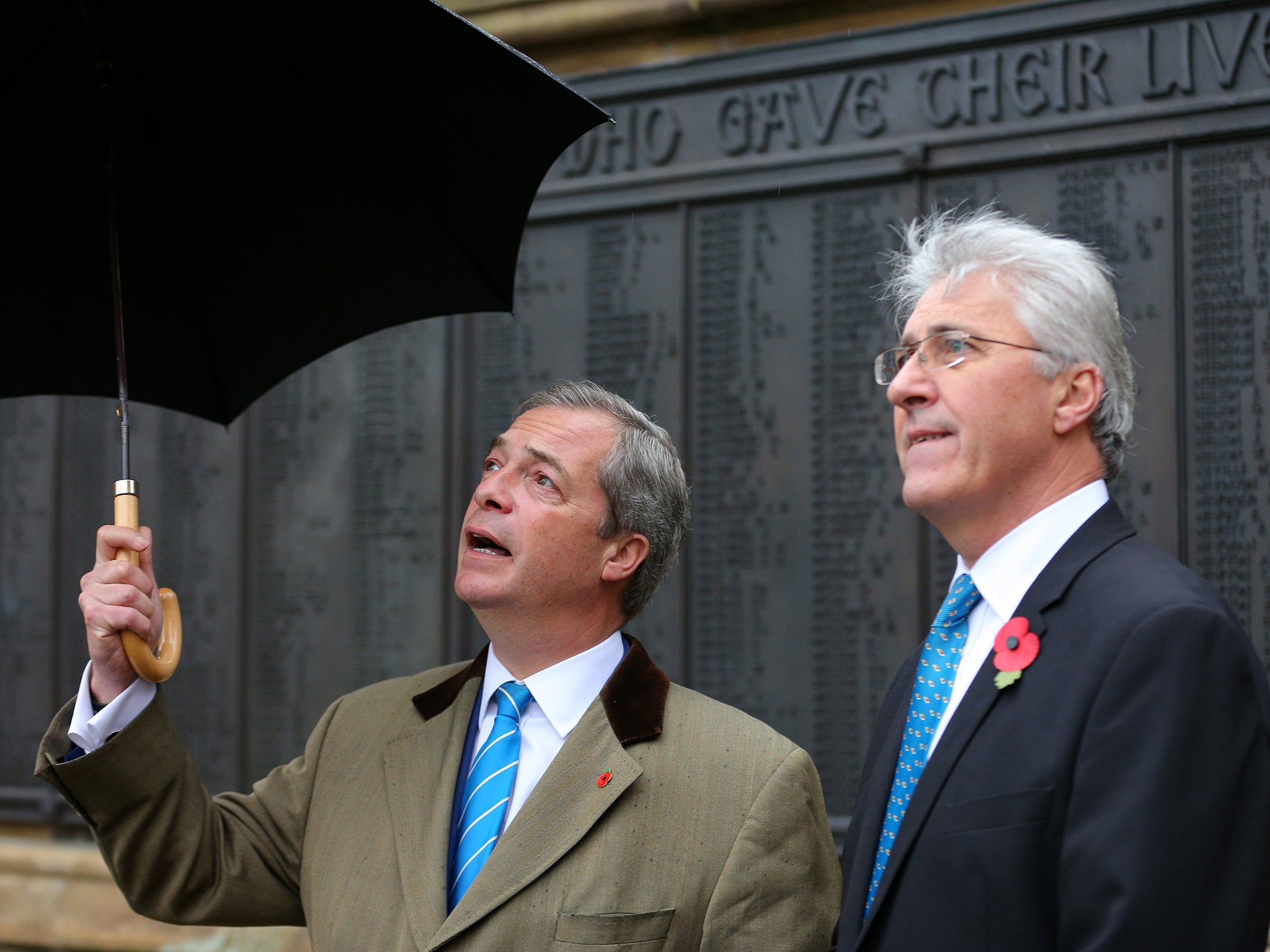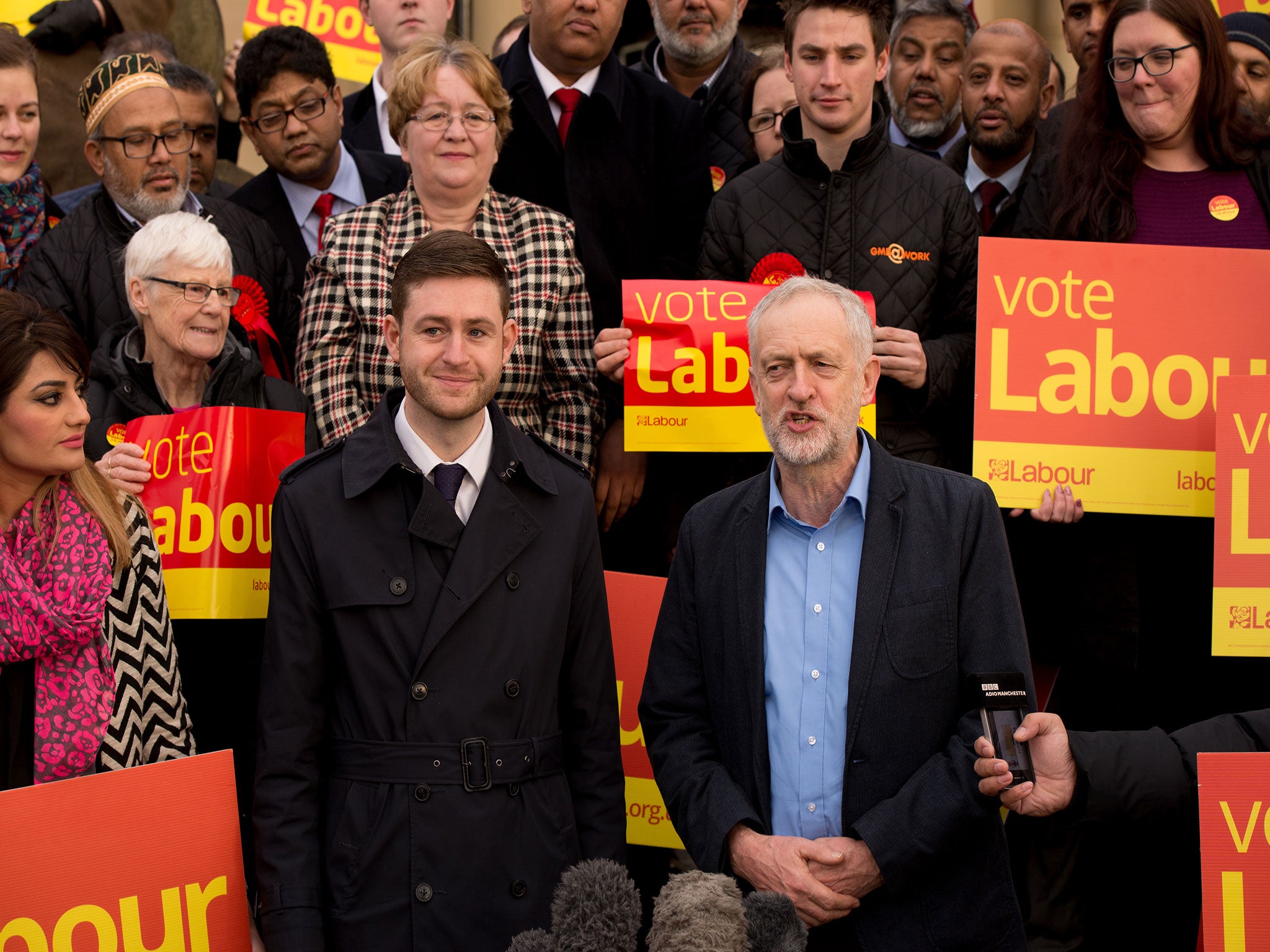The news from Oldham is ... Ukip is finished
Having had a terrible general election, the party has now lost its reason for existing


Your support helps us to tell the story
From reproductive rights to climate change to Big Tech, The Independent is on the ground when the story is developing. Whether it's investigating the financials of Elon Musk's pro-Trump PAC or producing our latest documentary, 'The A Word', which shines a light on the American women fighting for reproductive rights, we know how important it is to parse out the facts from the messaging.
At such a critical moment in US history, we need reporters on the ground. Your donation allows us to keep sending journalists to speak to both sides of the story.
The Independent is trusted by Americans across the entire political spectrum. And unlike many other quality news outlets, we choose not to lock Americans out of our reporting and analysis with paywalls. We believe quality journalism should be available to everyone, paid for by those who can afford it.
Your support makes all the difference.In a by-election you want a good candidate, good organisation and low expectations. Labour had all three in Oldham last week. It had Jim McMahon, the popular and well-known leader of Oldham council. It knows how to organise postal votes. And journalists and party activists assumed the result would be close, which not only helped boost turnout but it made McMahon’s victory look especially emphatic.
You might have thought that you would prefer to have a national party with a popular leader who isn’t engaged in a civil war with his parliamentary colleagues, but it turns out that this is an optional extra.
Given that the case against Jeremy Corbyn is that Labour cannot win elections with him as leader, an increased share of the vote in a by-election is an excellent result for him. It was a poor result for the Conservatives, although you would expect the party of government to do badly in a by-election.
But it was a disastrous result for Ukip. It confirms that the party is finished. Having had a terrible general election, the party has now lost its reason for existing. Its purpose is to win the argument for Britain to leave the European Union. Not only did the voters give it just one seat in May, but they elected a Conservative government committed to a referendum. The question of our EU membership will be decided by the British people in the next two years – and Ukip has so little support that the “leave” campaigners want as little to do with it and its backward-looking image as possible.
By chance, a new book about Ukip landed on my desk on the day after the by-election. Ukip: Inside the Campaign to Redraw the Map of British Politics, by Matthew Goodwin and Caitlin Milazzo, might as well be subtitled “The Failure of the Campaign to Redraw the Map of British Politics”. Goodwin was also the co-author with Robert Ford of the definitive account of the rise of Ukip, Revolt on the Right: these are the best academic minds on the subject, and Goodwin and Milazzo conclude that the referendum “will be very difficult for Ukip and other Outers to win”.
They see a future for Ukip only as a party of protest, “as an alternative political home for a significant section of British society – an outlet for lingering worries over immigration, its effects on changing communities, and in an age when the ability of mainstream politicians to respond to these concerns has been greatly reduced”.
Yet, what is the point of a party of protest that cannot win a by-election, a device designed by the British constitution for the purpose?
The book reminds me, too, that Nigel Farage declared, “Corbyn is a gift for Ukip”, at his party’s annual conference, a few days after the Labour leader’s election. If so, he is the gift that hasn’t started giving.
Farage may be right – eventually – that Corbyn’s unpopularity will be a problem for Labour, but it won’t be Ukip that will benefit. Our ComRes poll last month found that 50 per cent of voters already regard him unfavourably – the same rating as recorded for Ed Miliband just before the election campaign. Presumably the 22 per cent who have a favourable view of him feel more strongly than the 20 per cent who had a favourable view of Miliband, but there is no doubt that Corbyn has hit the ground struggling.

That said, the Oldham by-election is a corrective to the hothouse of Westminster, where the hyperbolists insist every day that things are so bad for the Labour leader that he cannot go on. That may mean normal people have noticed one or two negative stories about him. Canvassers in Oldham said that Corbyn disagreeing with a shoot-to-kill policy had “cut through” to people. If it had, it wasn’t a big drag on Labour support.
What the hyperbolists have failed to notice is that some things are going Corbyn’s way. Rival opposition parties are falling away and the Government is likely to be weaker at the next election in one respect.
Not only is Ukip finished, ending competition with Labour for the disaffected working-class vote, but the Liberal Democrats have bowed out too. Unless they find some great cause, boundary changes will cut their eight seats to four or fewer. That means Labour dissidents have nowhere to defect to, and there is no prospect of a breakaway like the SDP. Not only that, but the best politician in the country, David Cameron, is going to give up power voluntarily, handing over to Boris Johnson, George Osborne or someone else, none of whom is likely to be as formidable an opponent (although Johnson could be).
All Corbyn has done is look around disapprovingly over his glasses, and his opponents – outside the Labour Party – seem to be leaving the field. Only in Scotland are Labour’s opponents standing. If he could defeat his enemies inside his party, he would stand almost alone against a weakened Conservative Party.
Join our commenting forum
Join thought-provoking conversations, follow other Independent readers and see their replies
Comments